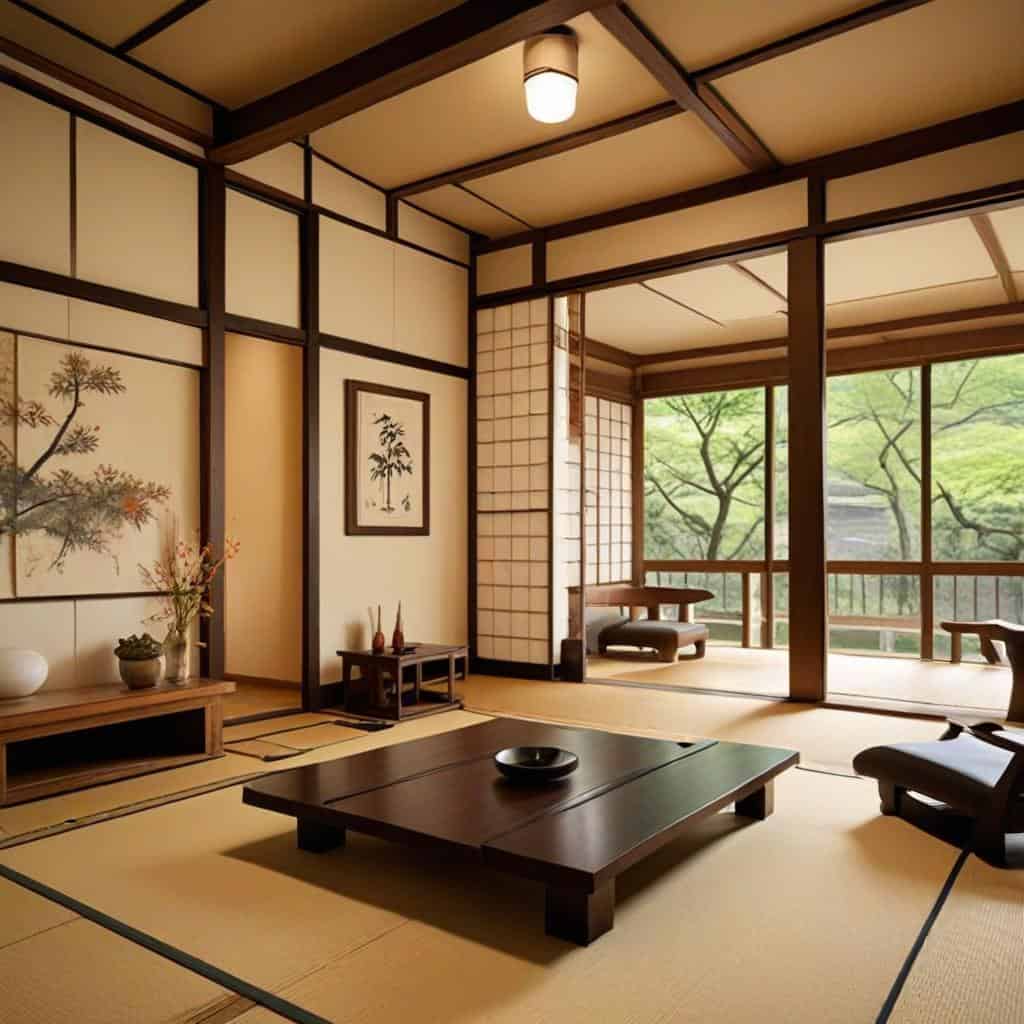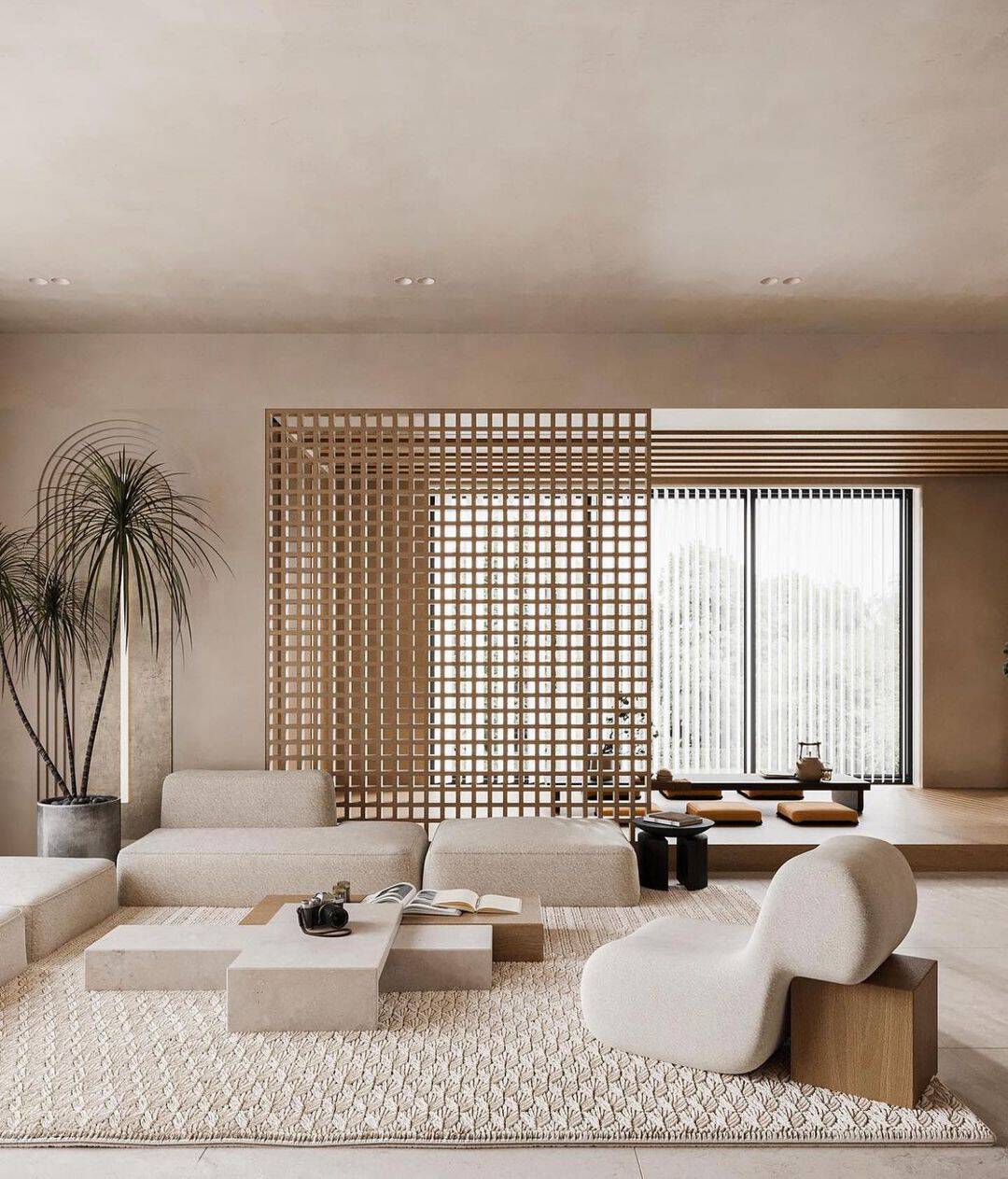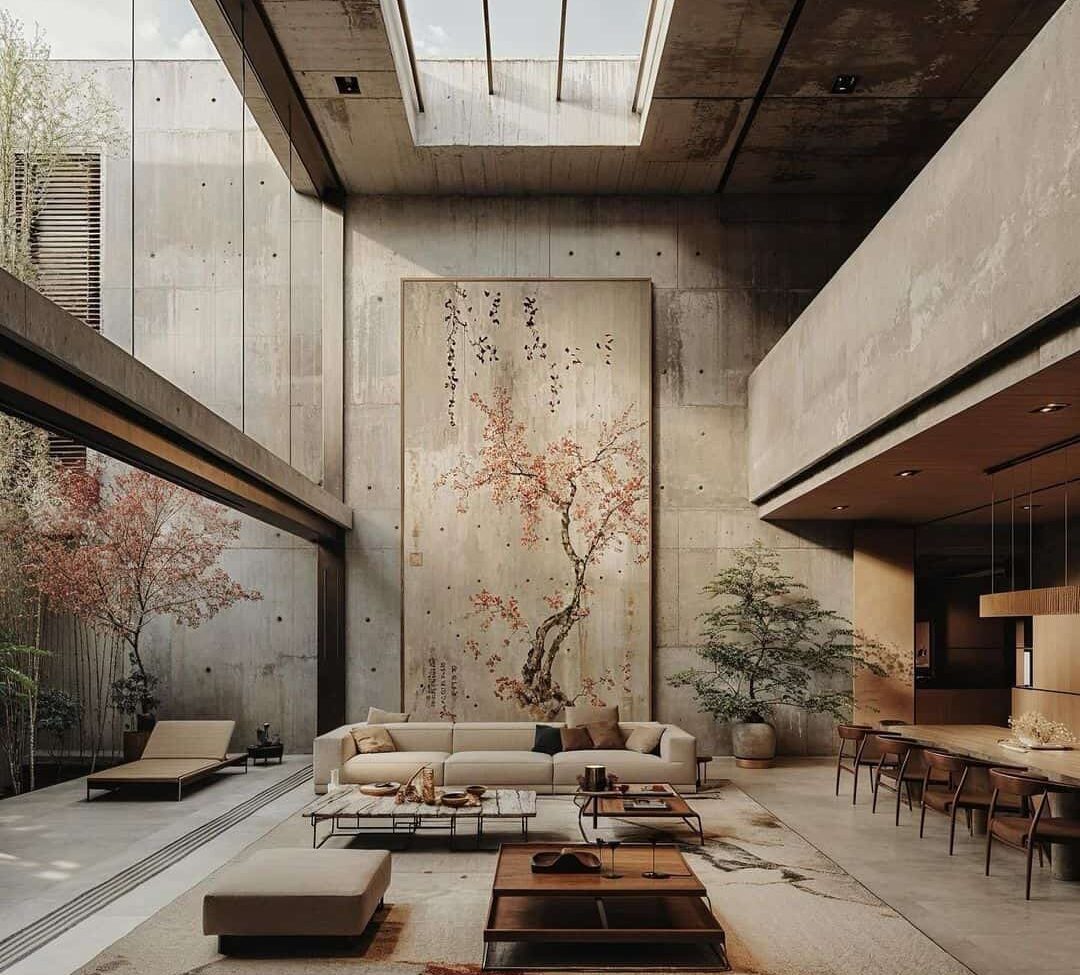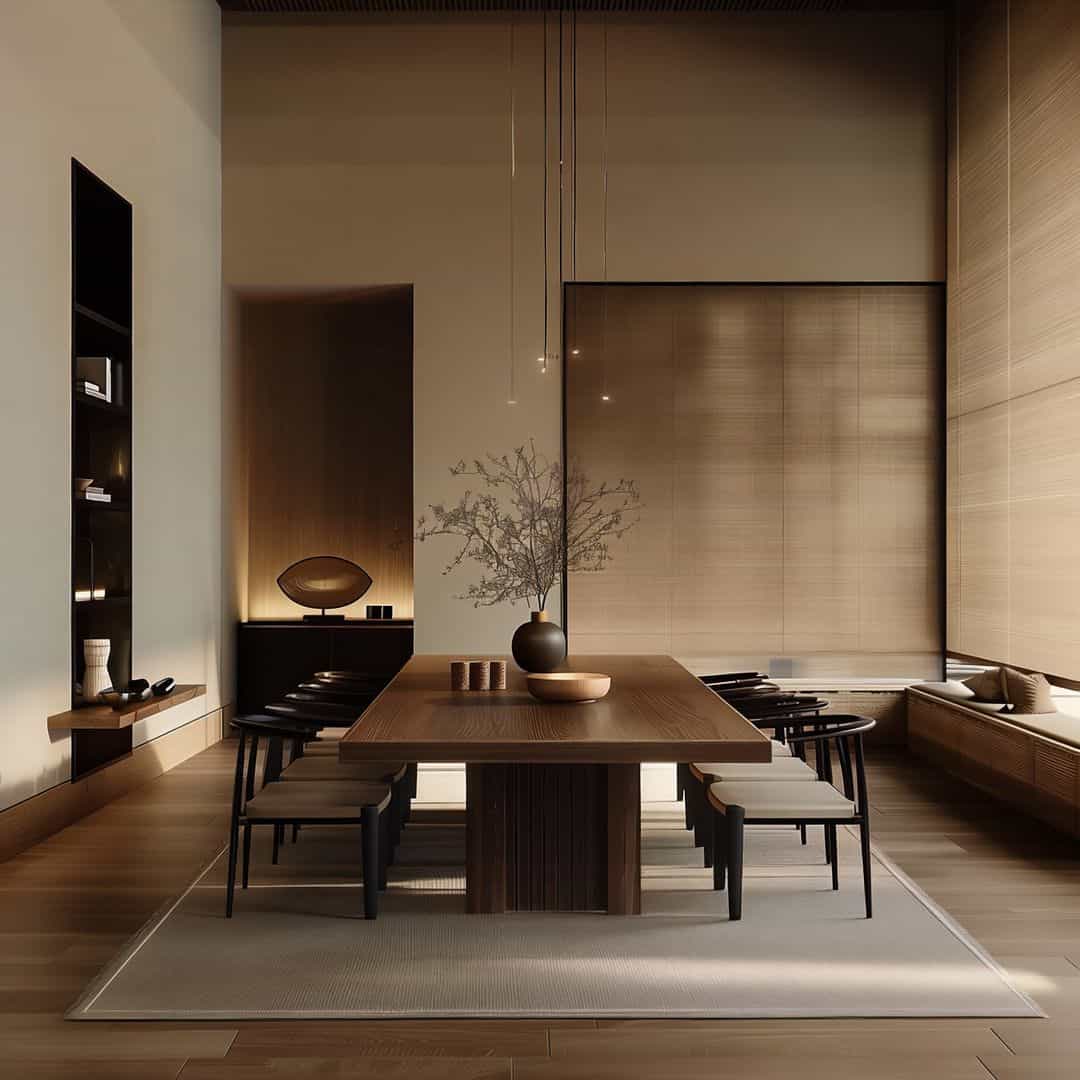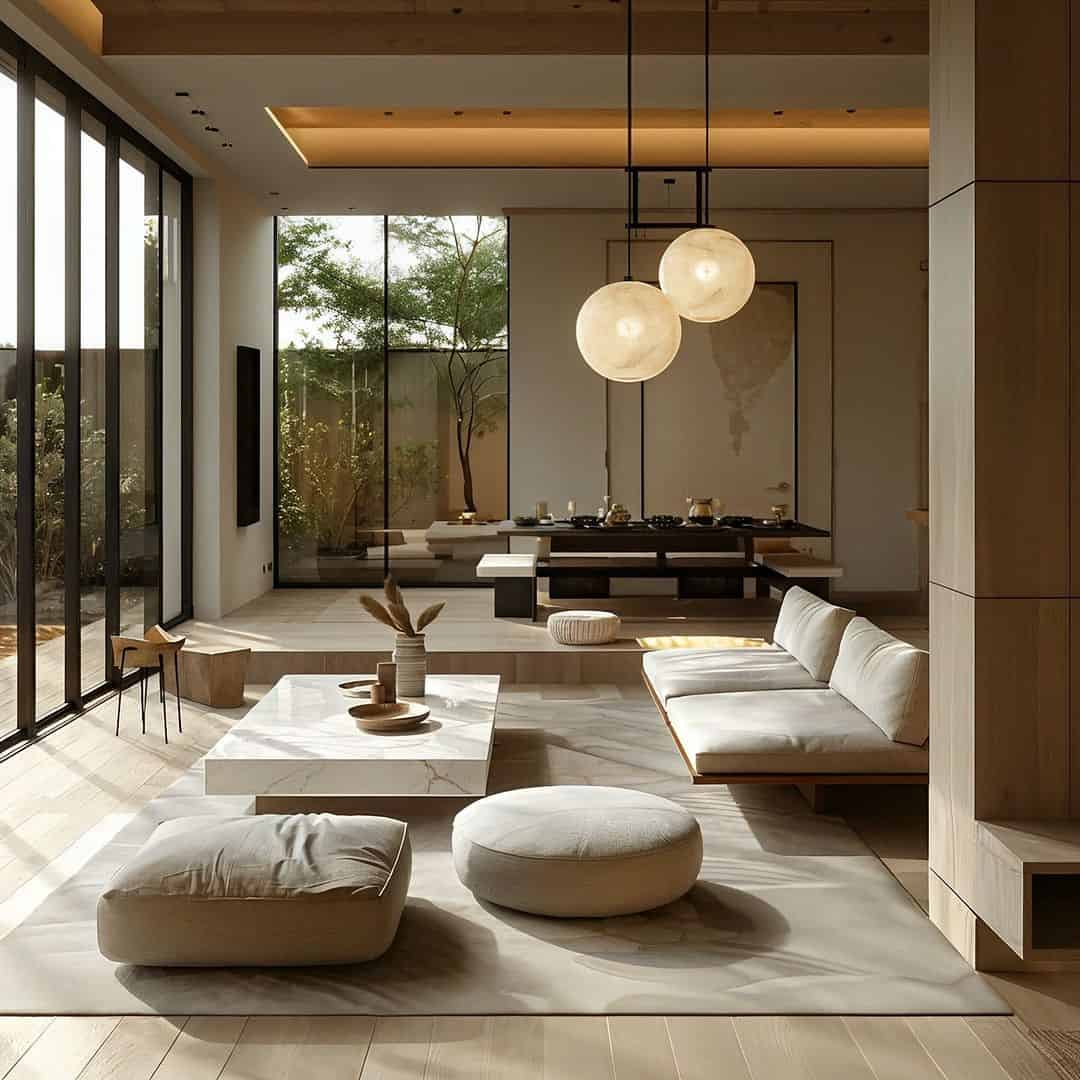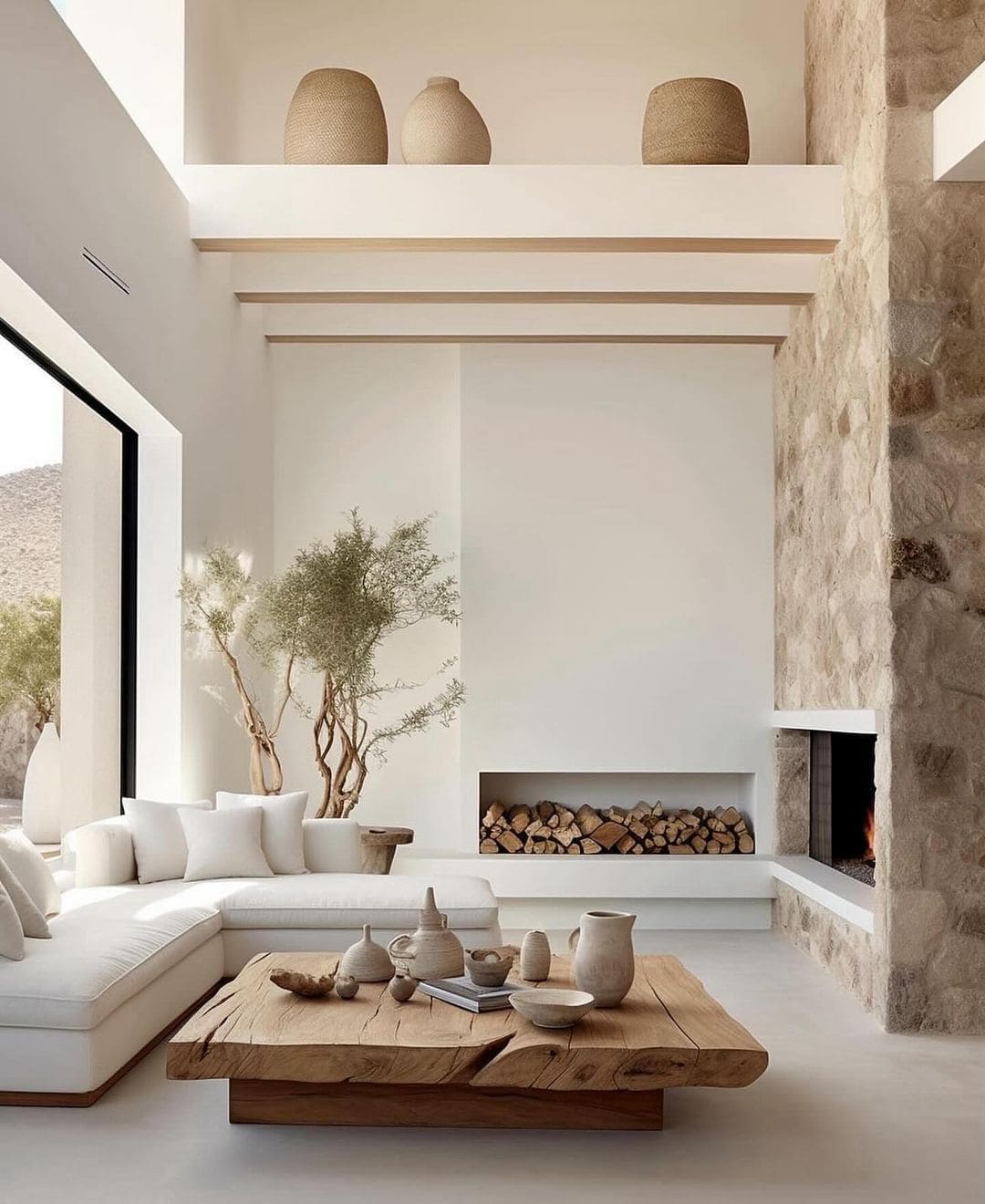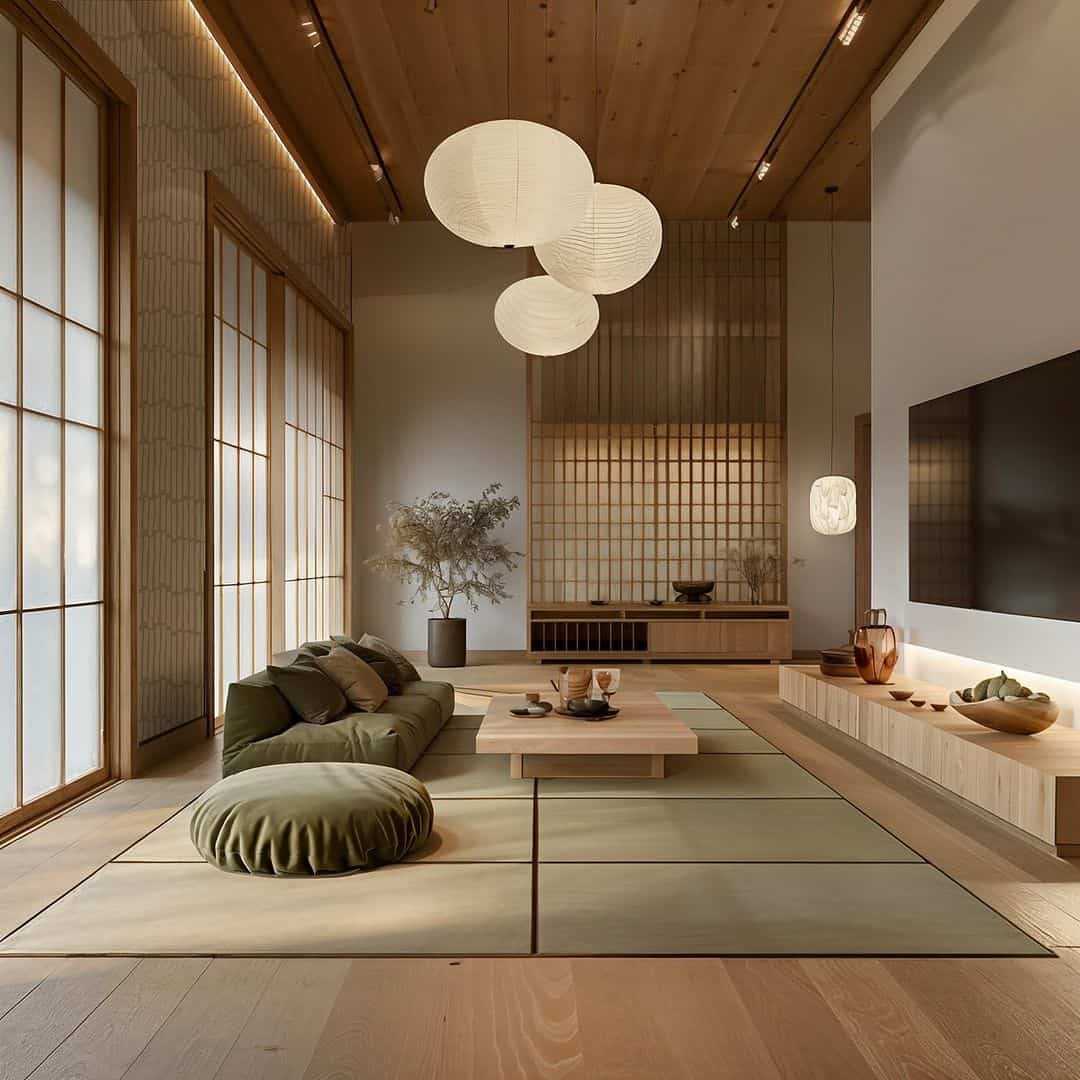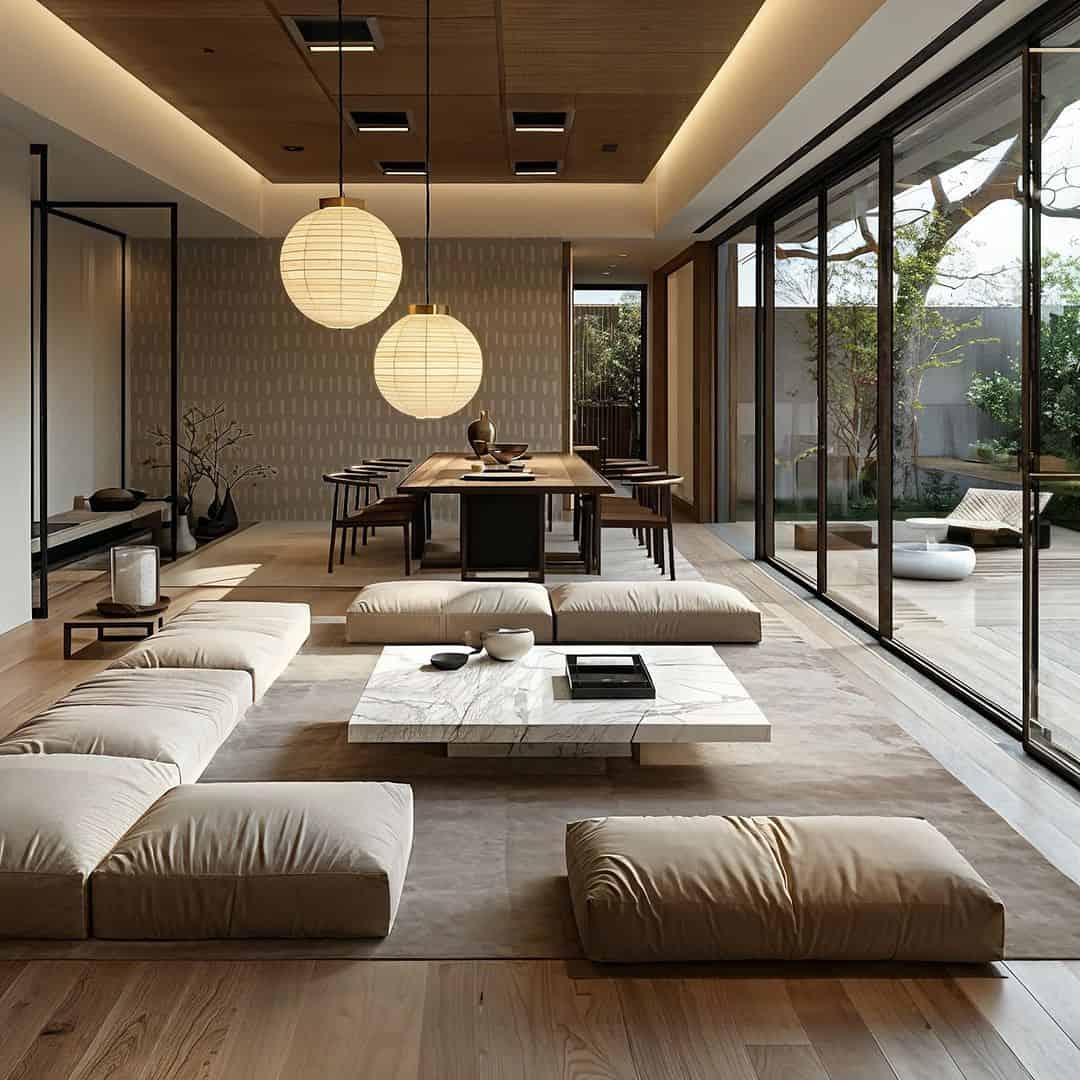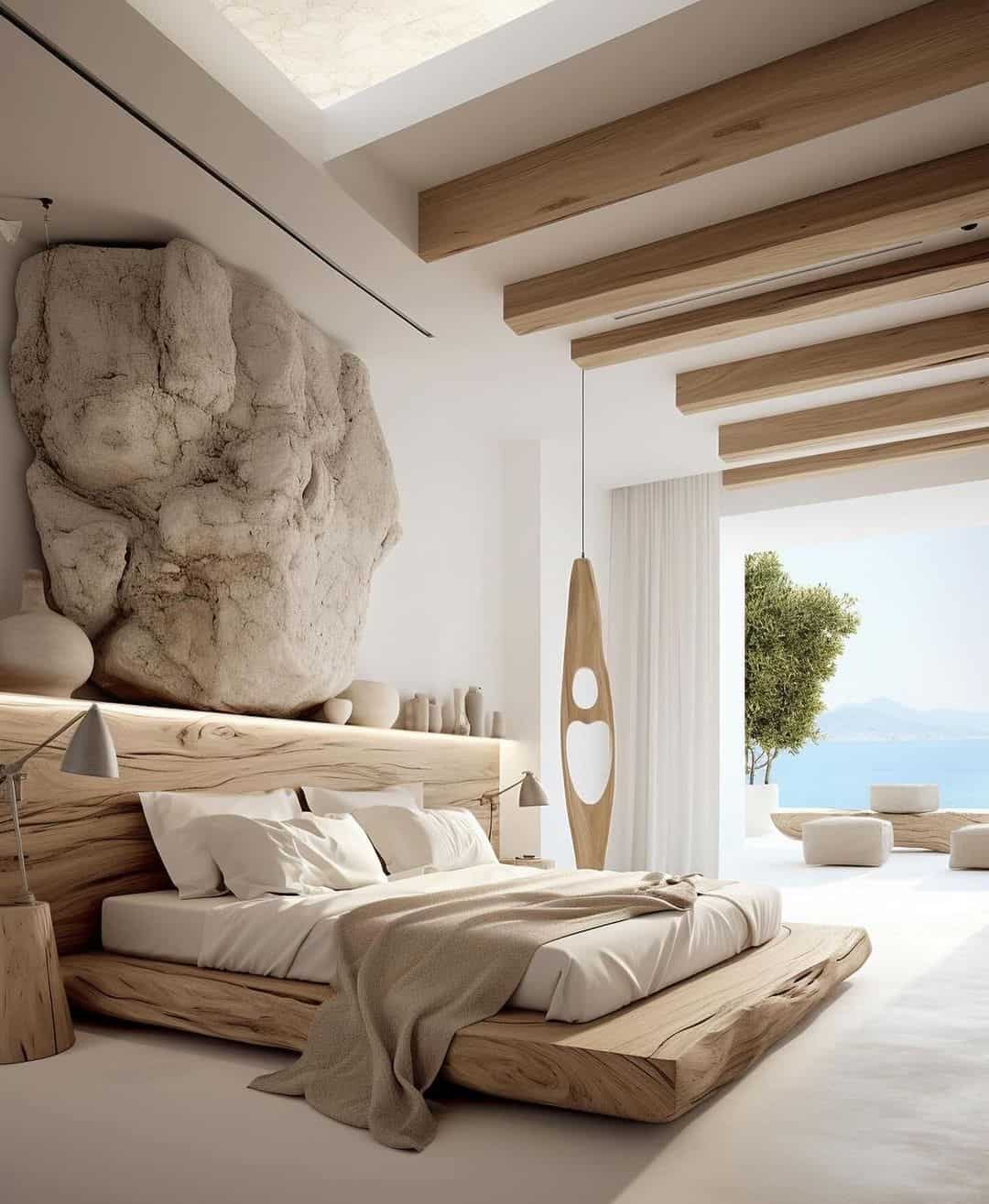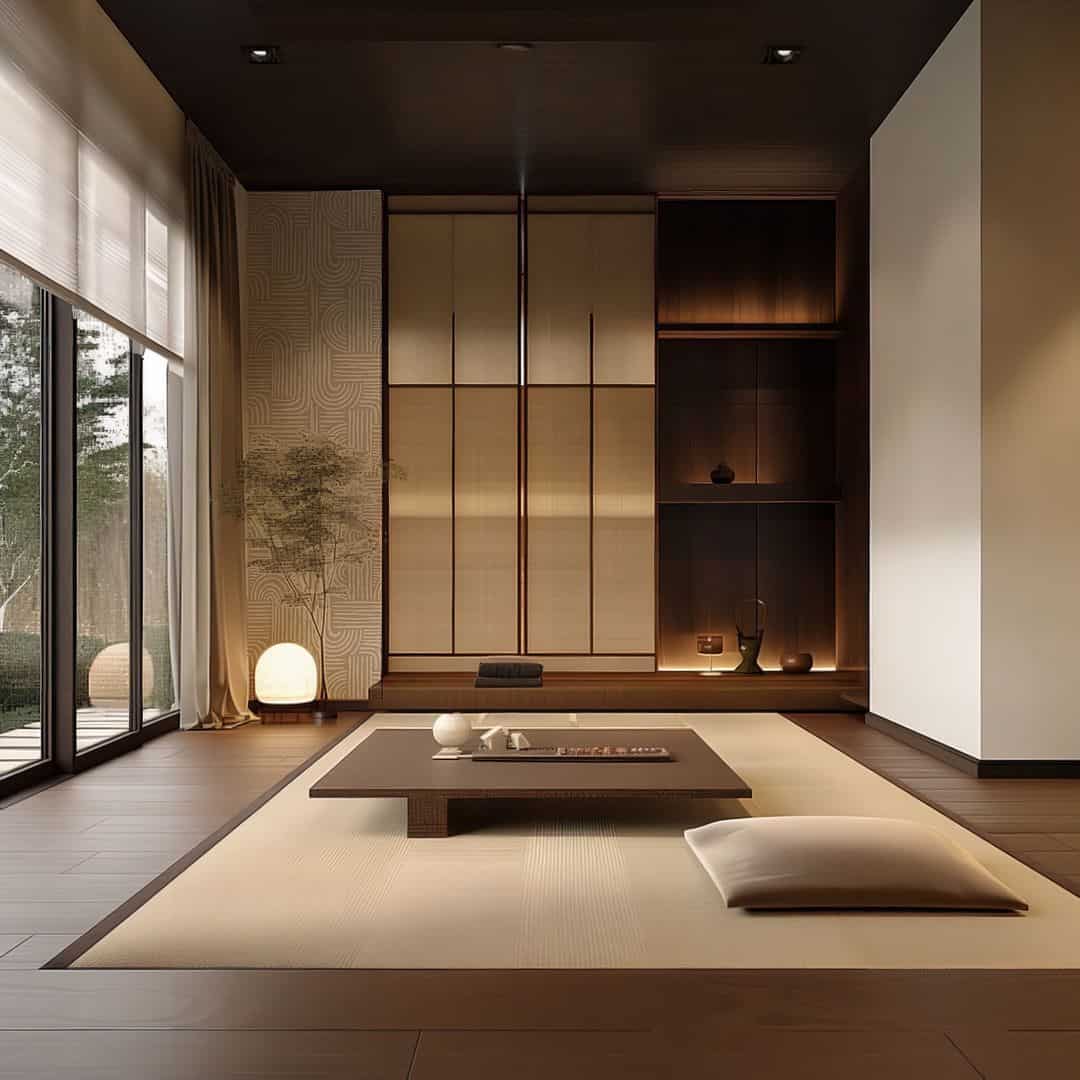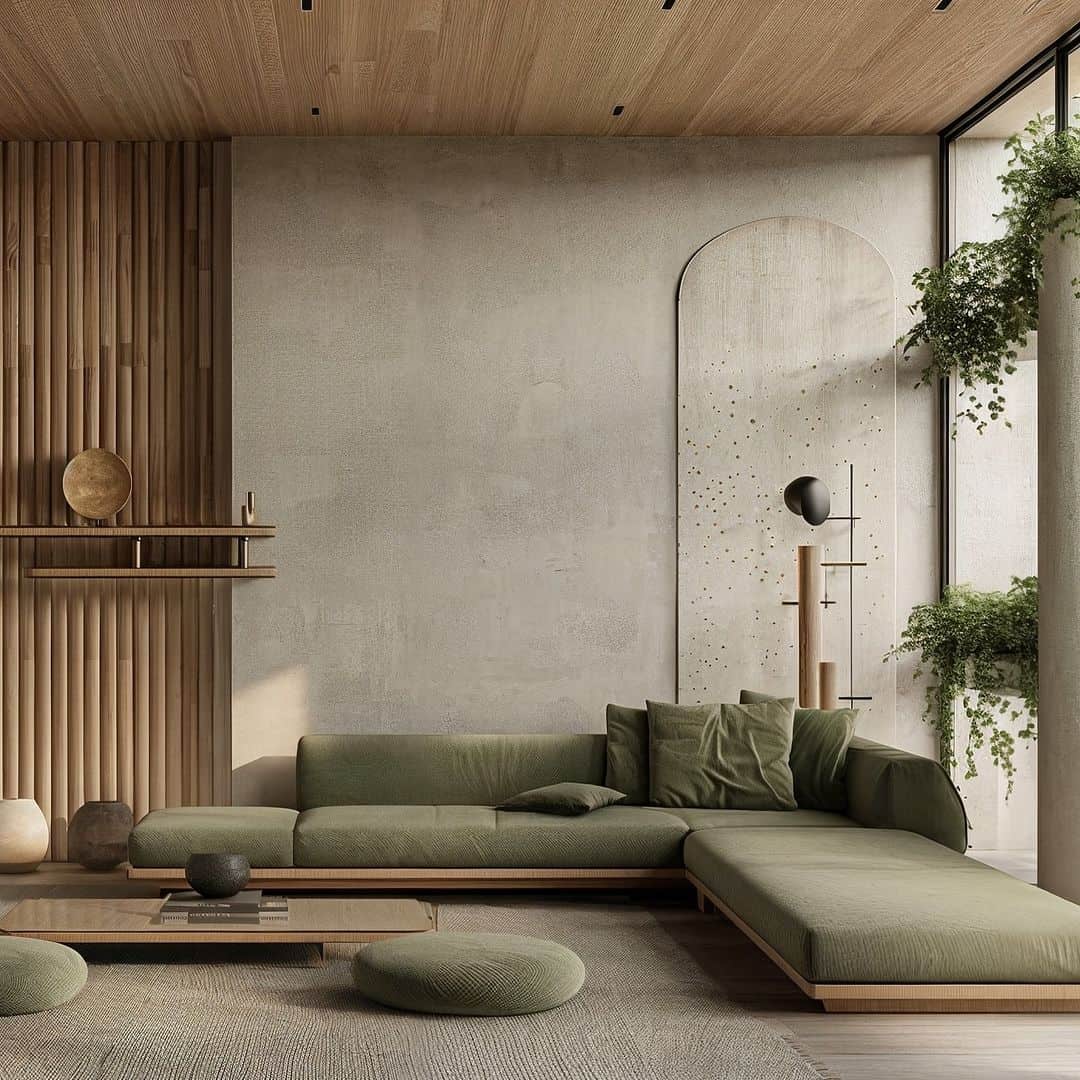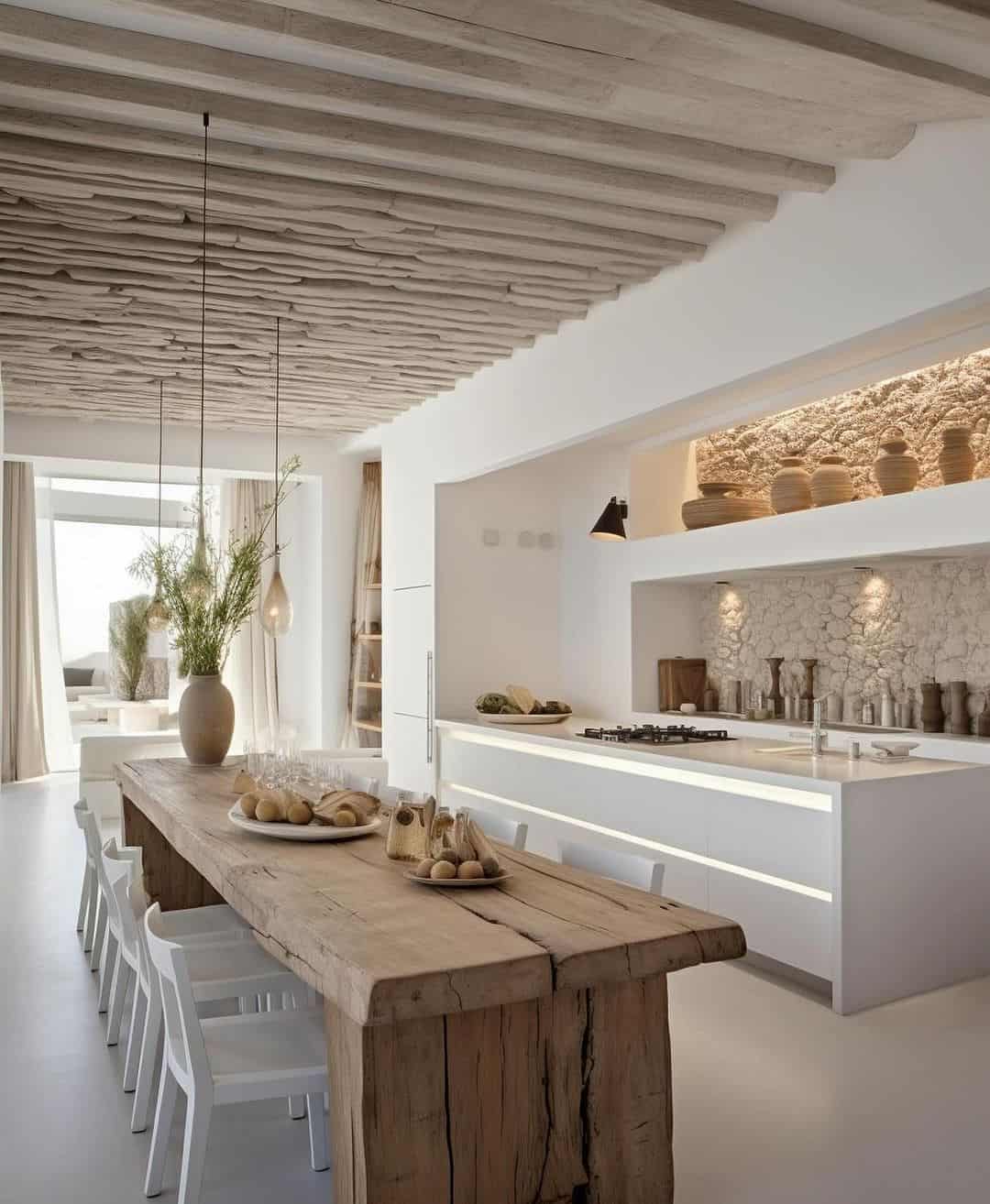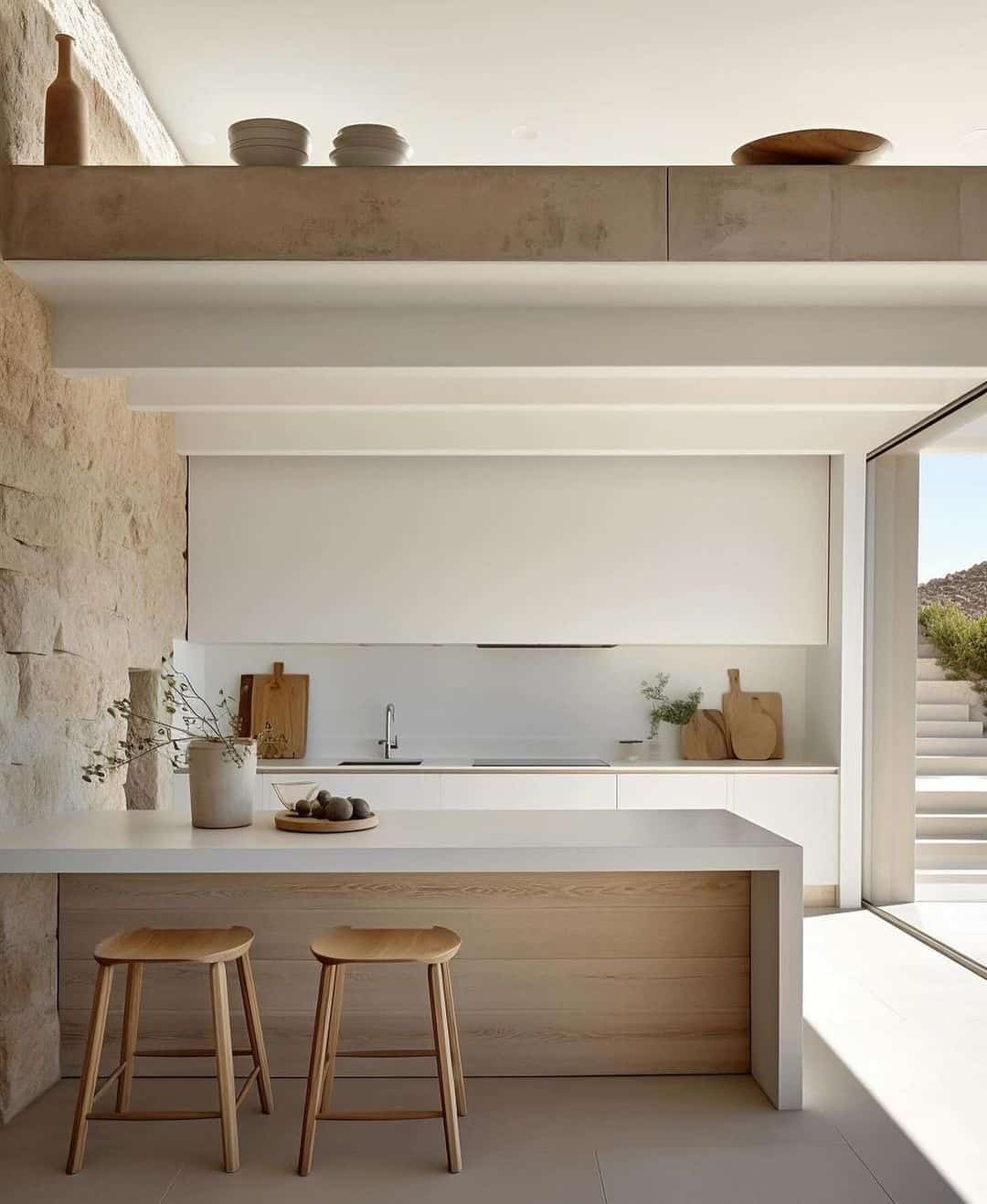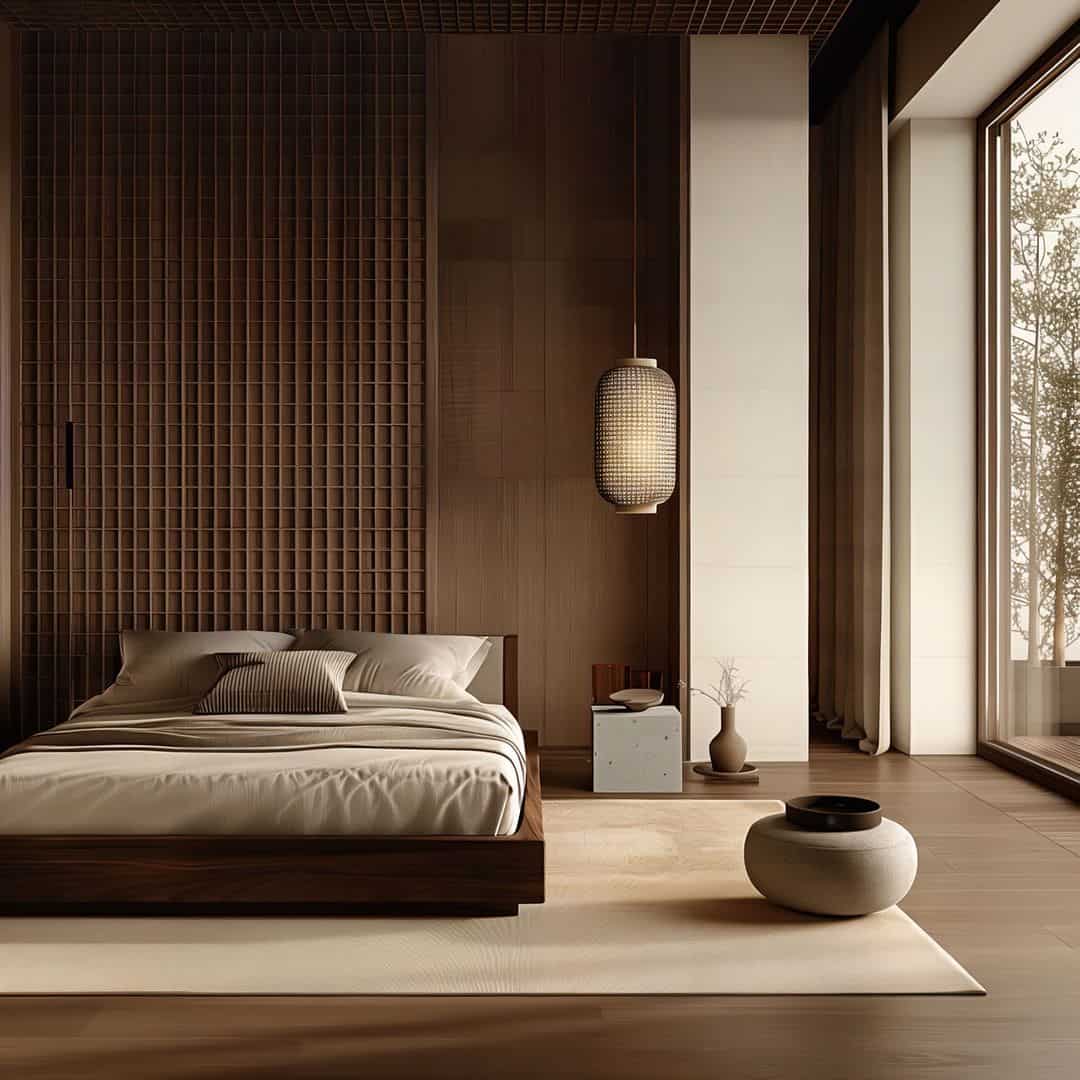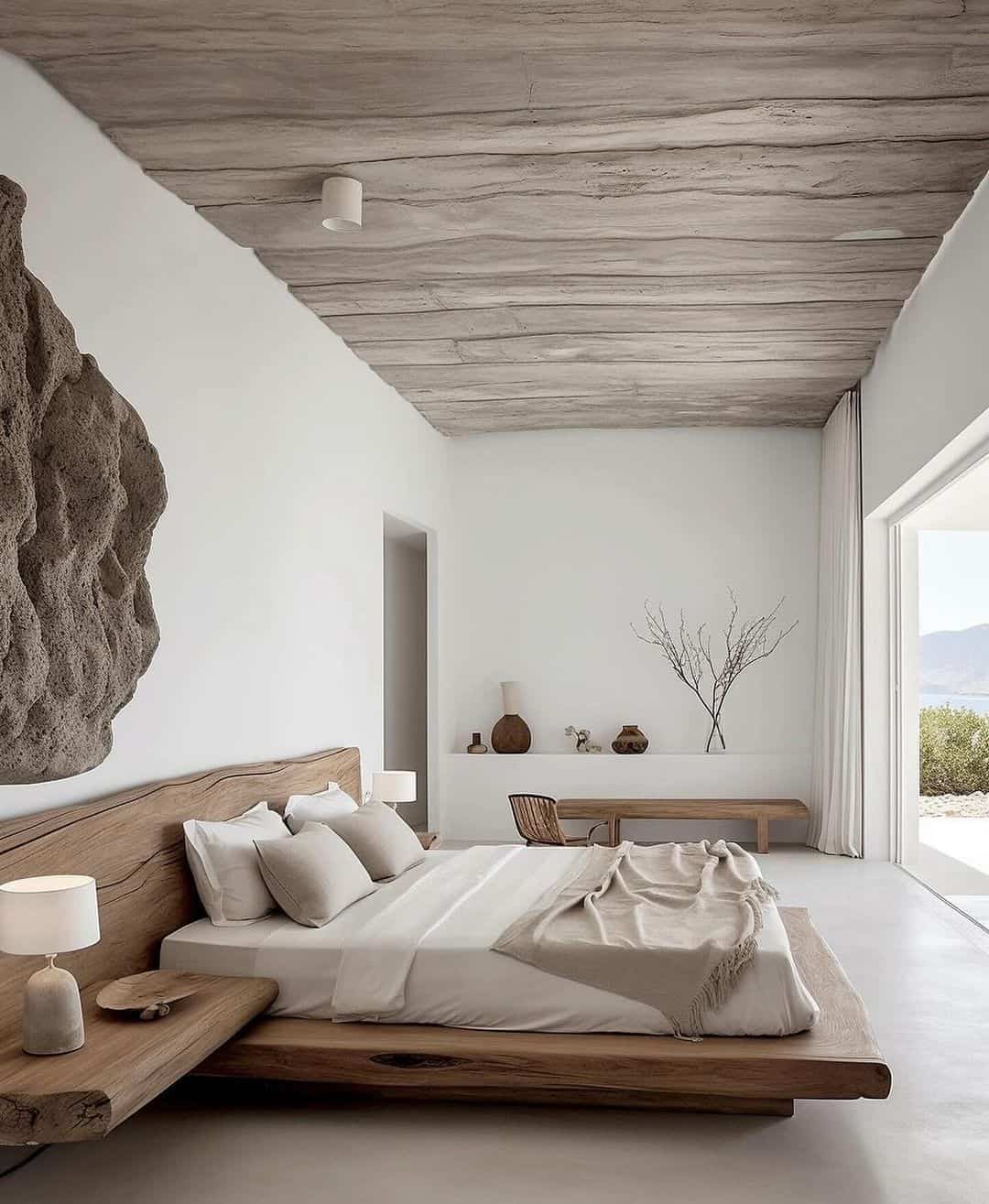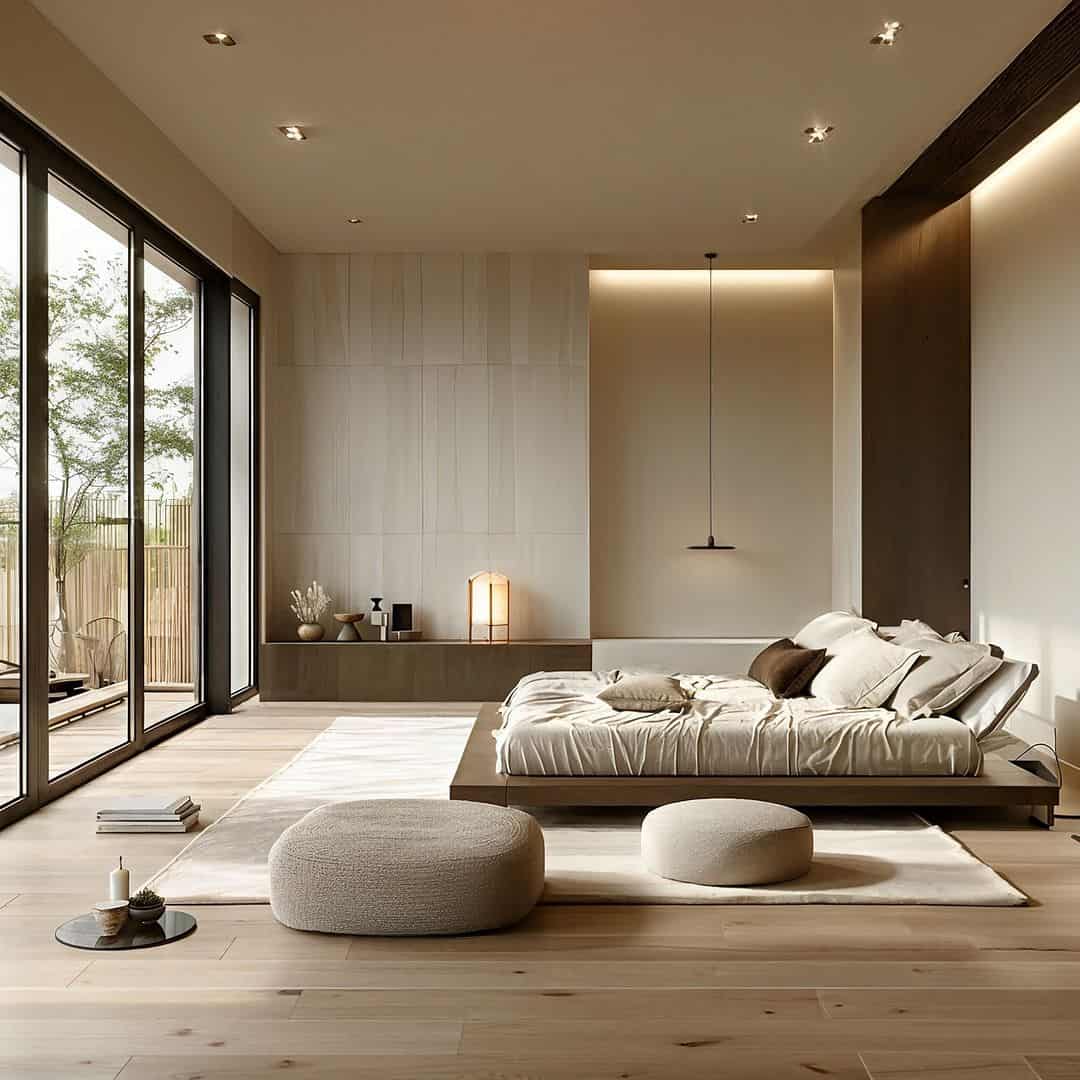Known for its minimalistic approach, simplicity, and functionality, Japanese interior design has become largely popular ever since many people decided to avoid maximalism.
This style represents the Japanese culture by being connected with nature and accentuating simplicity and elegance.
This style brings serenity and feelings of peace, as there is nothing to distract you or make you feel overwhelmed.
The overall beauty of the style is in its:
- connection to natural elements,
- clean lines,
- big windows,
- and simple furniture.
There are several characteristics that make this style unique and desirable, so let us explore all of them.
Natural Materials
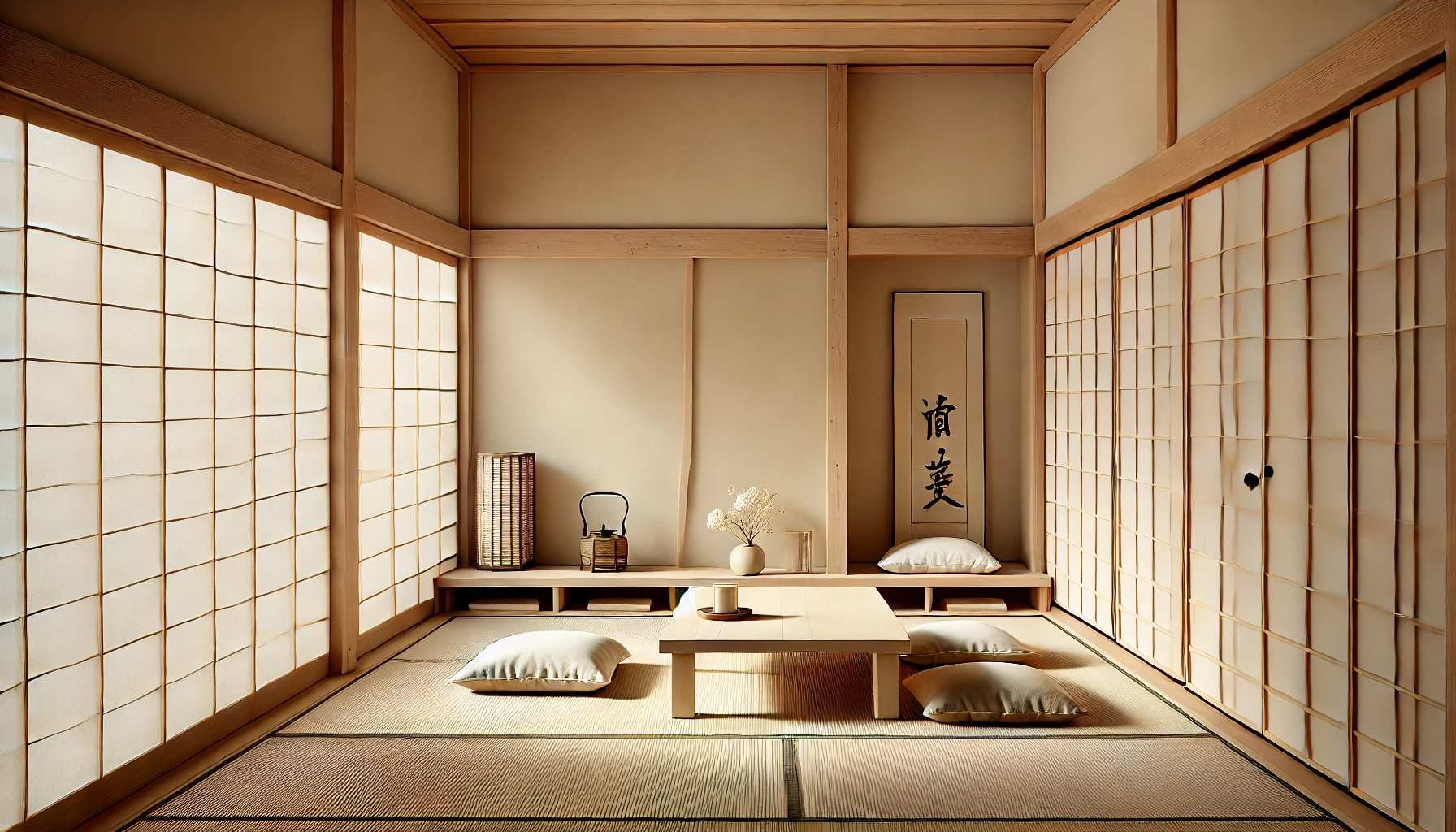
Japanese interior design is known for its use of almost everything natural.
From wood to translucent paper, they are all utilized to make the home more balanced and natural.
Minimalism
The minimalist approach is rooted in Japanese culture of not buying anything you do not need, and being modest in your interior design.
Clean lines also add to the minimalist vibe as they accentuate simplicity.
Connection To Nature
You can find many natural materials in Japanese interior design, as well as plants, big windows for views, etc.
Neutral Palette
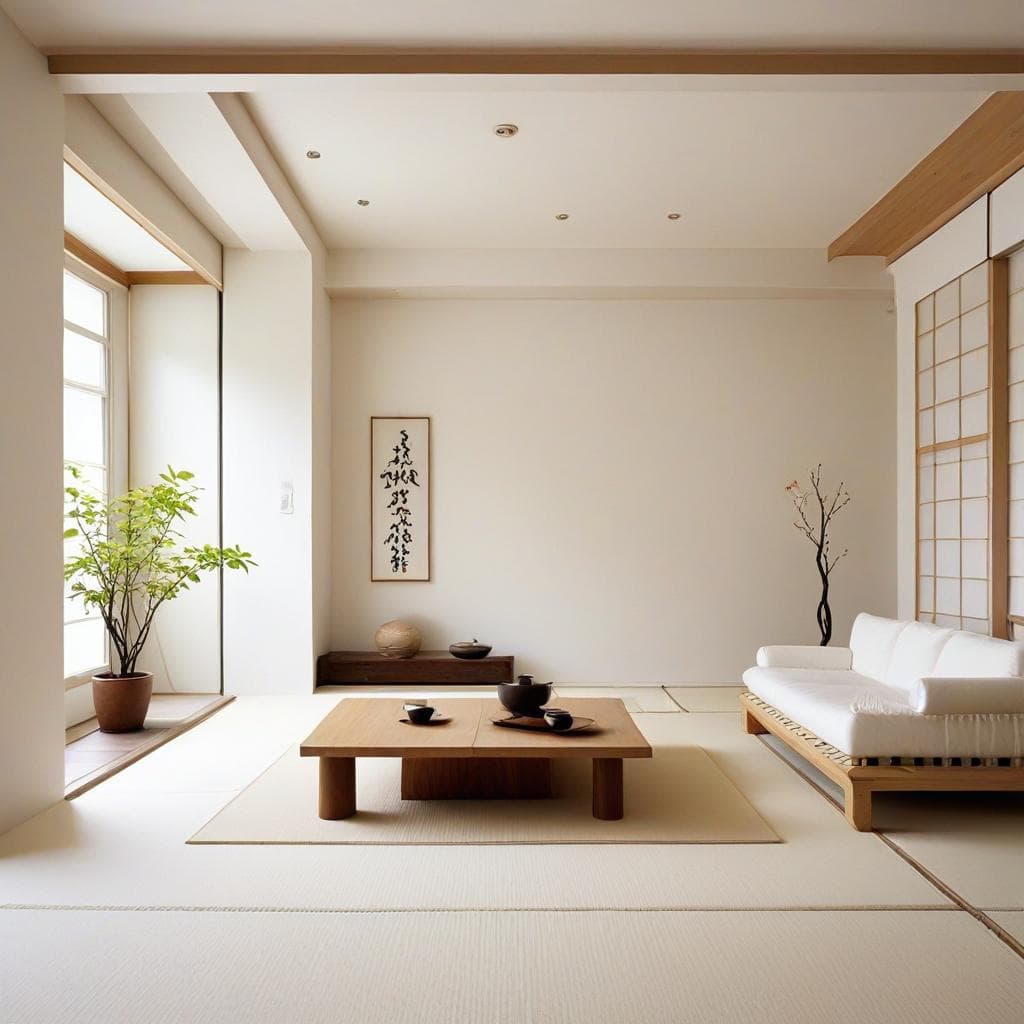
Japanese interior design mostly uses muted, neutral, and natural colors such as white, beige, brown, and gray.
If you want to add dimension, it is usually done by adding texture.
Integration
Connecting two different spaces into one is popular with this style, so you may see dining rooms integrated into living rooms.
Natural Light
Big windows are used for views and natural light.
It is important to get as much natural light as possible because this style is supposed to blend with the surrounding nature.
Tatami Mats
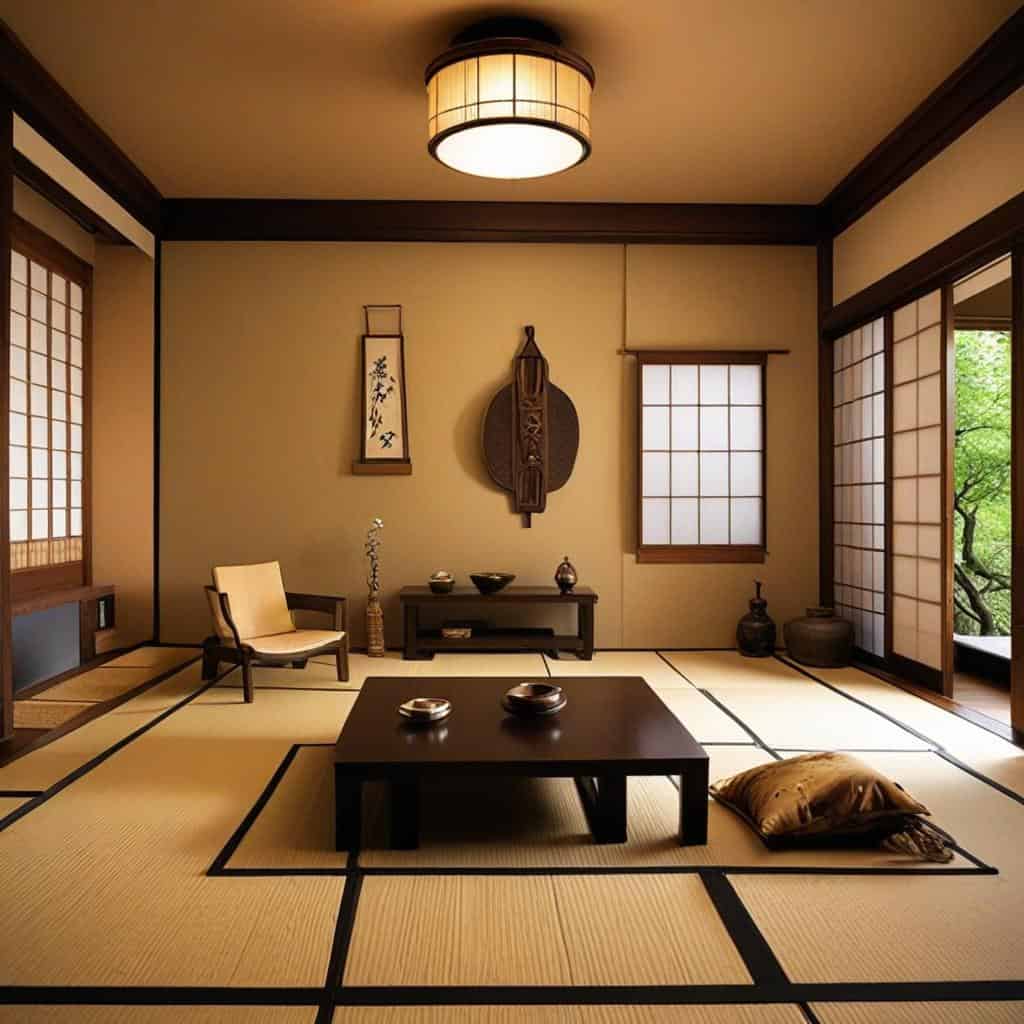
These are mats made out of straw that are used as traditional flooring.
Functionality
Everything is compact, and furniture pieces are mostly multi-functional.
Open Plan
Accentuating the flow of light is very important, so open floor plans are very popular with this style.
Wabi – Sabi
Using natural and unpolished materials is what this philosophy encourages.
Simply, it teaches us to find beauty in imperfection.
Balance And Proportion
Most Japanese interior designs love balance and proportion, so you will always find carefully planned room layouts.
Including Traditional Elements
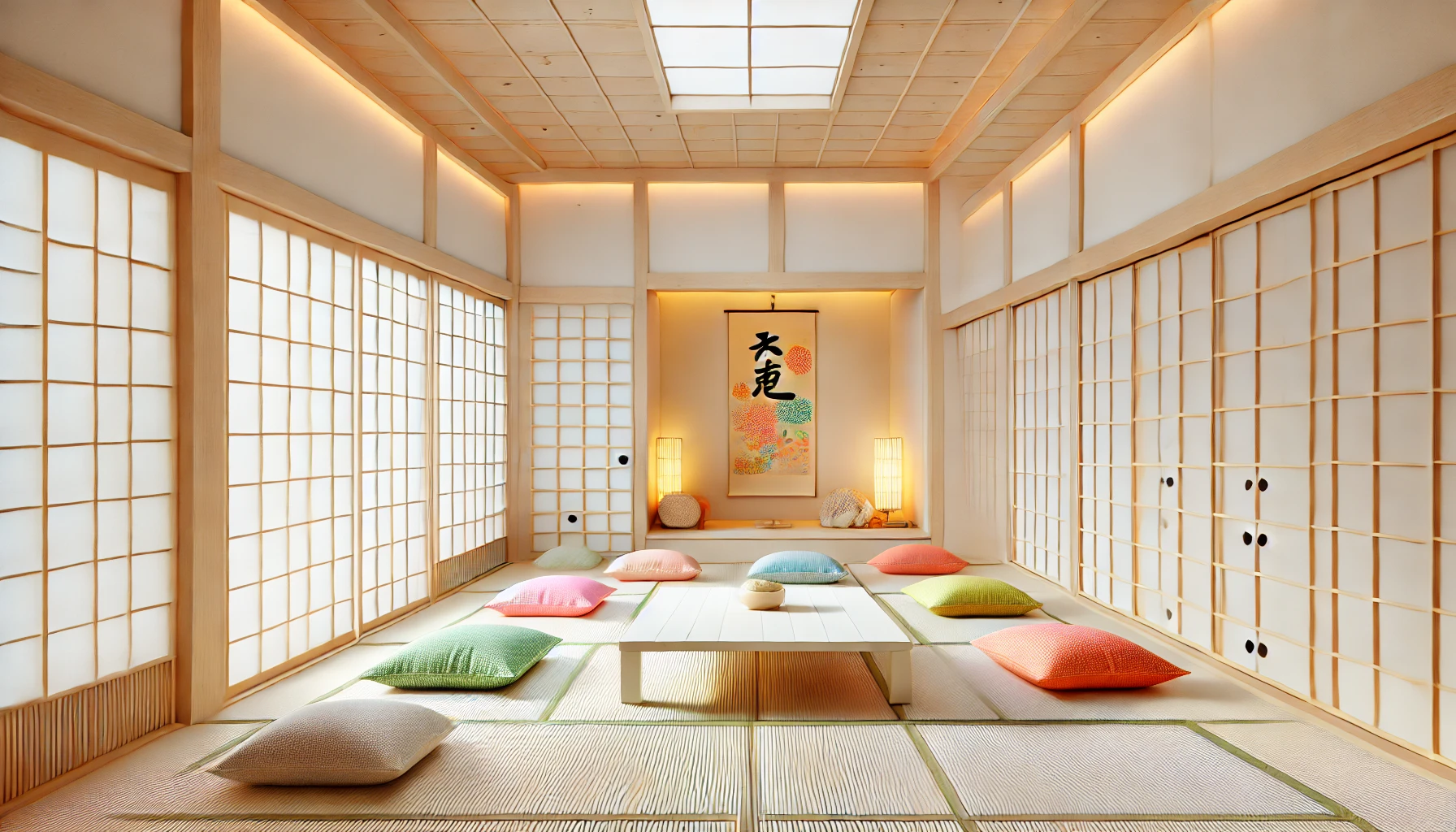
Japanese traditional elements will always be found as pieces of decoration or as centerpieces.
A Modern Twist
If you want to include Japanese-inspired interior design in your home, do not be afraid to add personal touches or modern twists.

